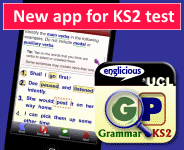Topic: Pronoun
Pronouns are common words like it, you, she, someone and who, which may stand in for nouns or noun phrases.
Englicious contains many resources for English language in schools, but the vast majority of them require you to register and log in first. For more information, see What is Englicious?

